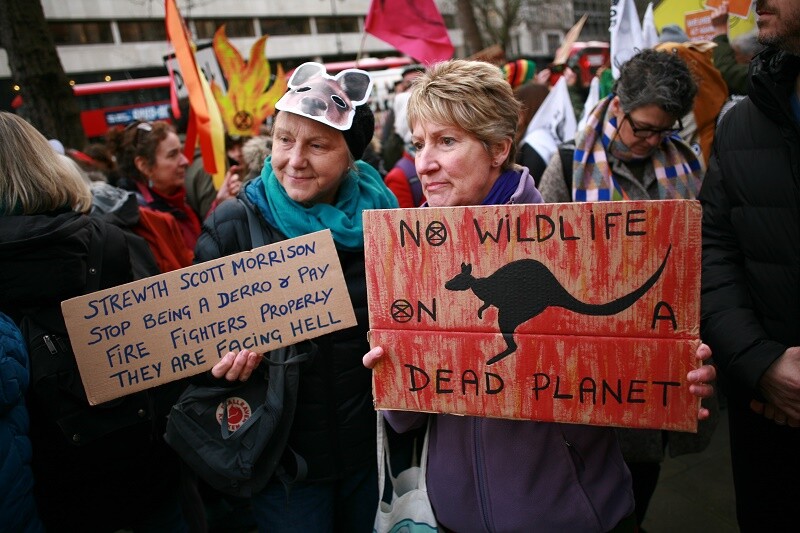Talking point: My home country is burning
“Melbourne people – now is the time to be wearing a mask,” a friend says over video, as I scroll through Instagram.
“You may have noticed that it’s disgustingly smoky out there, that’s because the air quality is at hazardous levels. Stay inside, seal all of the doors and windows, when the air is better you can air out your house. OK, everybody, stay safe.”
As I keep scrolling, photos of a thick haze hide Melbourne’s city skyline, warnings from environmental authorities, a tennis player collapses during a coughing fit at the Australian Open.
And then, just one day later, the cool change brought hailstones the size of 50p coins. Some suburbs received their entire month of rainfall in one hour.
Parts of my home country are burning, and other parts are unable to breathe. This is climate change.
The Australian government knew it was coming, even if they didn’t want to believe it.
In April last year, 23 former fire and emergency chiefs, with 600 years combined experience, warned the government that people would die, firefighting volunteers would mentally and physically burnout, and the fire season could become year-round if urgent action wasn’t taken.
Ex-NSW Fire and Rescue Commissioner Greg Mullins said it was “embarrassing” the government had done virtually nothing, while Australia’s emissions had risen. “This is a climate emergency, and we need the government – whoever they are – to sit up and take notice to stop joking about climate change, which I find offensive, and to actually read the science,” he said.
‘Stop joking’ because in 2017, current Prime Minister Scott Morrison brought a lump of coal into parliament during question time, prompting laughter from his colleagues. “This is coal – don’t be afraid, don’t be scared,” Morrison said.
Morrison is still treating the issue as a gag. After flying back one day early from his Hawaiian vacation in December, he is now suggesting that Australia shifts its focus to adapting to climate change, rather than increasing efforts to tackle the root of the issue (burning fossil fuels).
As Mullins recently wrote in The Guardian: “Continuing to burn coal, oil and gas is sending us down a pathway to an even hotter, drier Australia where conditions will get worse and worse.”
The science is clear. The last decade was confirmed as the warmest on record by three global agencies – NASA, NOAA, and the Met Office – and the past five years were the hottest in a 170-year series. Much of Europe experienced heatwaves in 2019, with a record-breaking 46 degrees recorded in France.
In Australia, last year was the hottest and driest on record. Meanwhile, the Australian drought continues to drag on, as 2019's average rainfall dropped well behind the 1902 Federation Drought.
As Greta Thunberg put it: “Not even catastrophes like these seem to bring any political action. How is this possible? Because we still fail to make the connection between the climate crisis and increased extreme weather events and nature disasters like the #AustraliaFires. That's what has to change.”

Before the smoke clouded my home city of Melbourne, there were other pictures on my Instagram, reflective of activism and anger. Adults and children marched down major city centres, wielding signs like: “Did you buy the planet dinner before you fucked it?” Many of my friends defied police orders to attend the protests.
And what does Morrison think about escalating climate activism? Not long before the fires began, he drafted new laws restricting the rights of protesters. In a speech to the Queensland Resources Council, he warned that “a new breed of radical activism is on the march. There is no place for economic sabotage dressed up as activism,” he said.
In that same week, across the other side of the Tasman Sea, the New Zealand parliament passed a “zero carbon” bill, making it one of few countries in the world with a legislated commitment to meet the goals of the Paris Agreement. How’s that for a contrast?
Holyrood Newsletters
Holyrood provides comprehensive coverage of Scottish politics, offering award-winning reporting and analysis: Subscribe